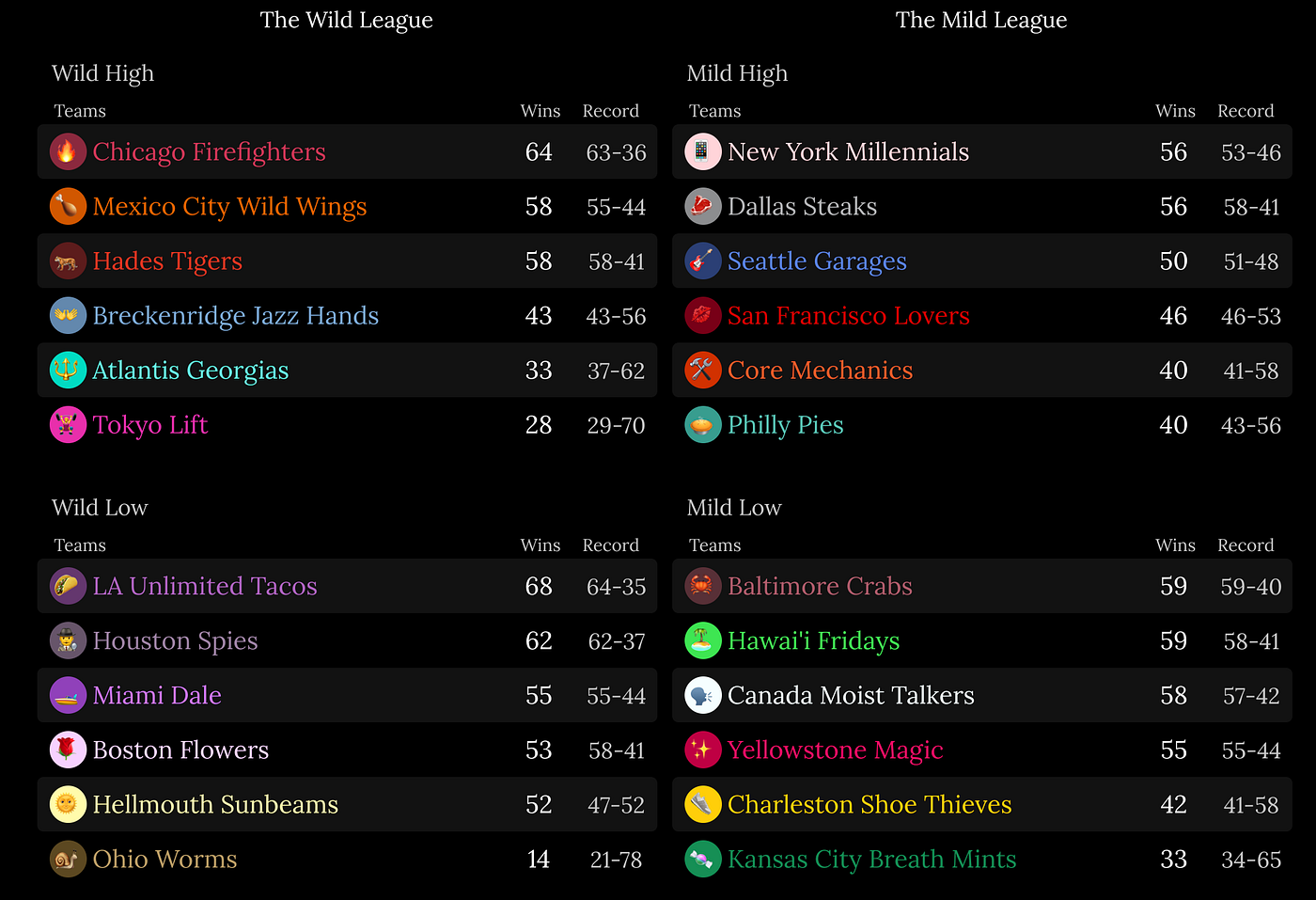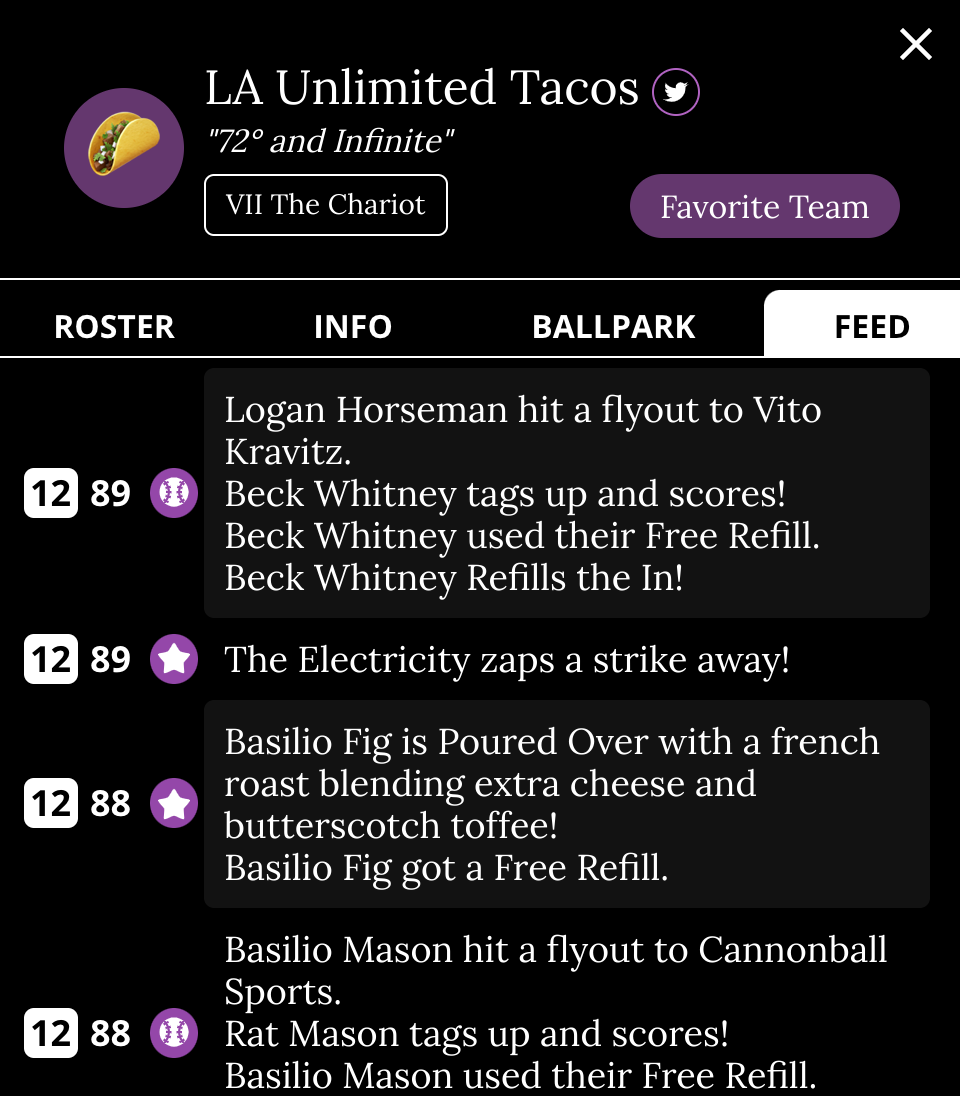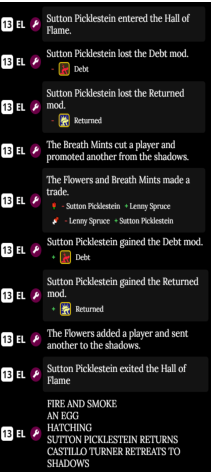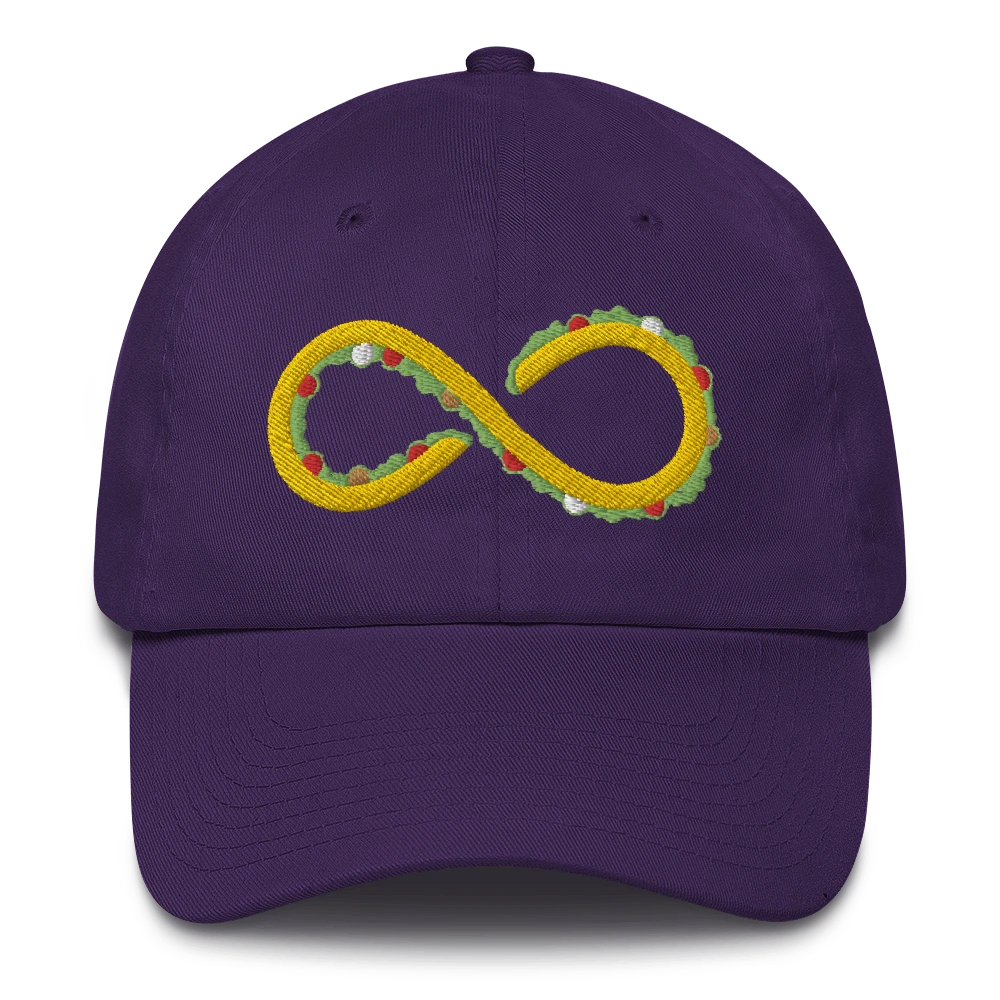Unlimited Tacos & Peanut Gods: ‘Blaseball’ Is Many Things, All At Once (The NoPro Review)
The pandemic gave rise to many internet oddities. The Game Band’s baseball simulator just might be the most intriguing, and immersive, of them all.


Welcome to the cultural event that is Blaseball.
Blaseball is, ostensibly, a video game. It’s “played” on a computer, created by an indie video game studio, and most frequently covered on sites about video games.
But what if, among other things, Blaseball is also an alternate reality game (ARG) that is deeply immersive?
The thinking behind this is that Blaseball plays with similar ideas and techniques that have cropped up in many modern immersive-style ARGs and alternate reality experiences (ARXs), including The Tension Experience, The Lust Experience, ARCANA, work by the Speakeasy Society, and others. I’ll get more into the specifics of those ideas and how it fits as something immersive in a little bit, but let’s begin by answering this question first.
What is Blaseball?
Now in Season 13, Blaseball is an absurdist baseball simulation, that its creators, The Game Band, have described as “a horror game, telling a story about building community amidst malevolent forces beyond your control.”
Okay, what does that mean? Hold on to your peanuts and C̶r̶a̶c̶k̶e̶r̶ ̶J̶a̶c̶k̶s̶ wet pretzels and cheese boards.

The league features 24 teams, including the LA Unlimited Tacos, the Canada Moist Talkers, and Hades Tigers, and players with randomly generated names and stats including Gerund Pantheocide, Blood Hamburger, Freemium Seraph, and Jacob Haynes playing a version of baseball on the Immaterial Plane that usually includes three bases and home plate. It’s not quite so simple though because while playing they’re subject to floods that take baserunners Elsewhere, a benevolent Sun 2 (a player named Tot Fox opened a black hole that destroyed the, uh, first?, sun), and malevolent rogue umpires who will occasionally incinerate (read: kill) players in the middle of a game.
The world that these players inhabit is governed by gods like a giant peanut (now deceased?), who was chomped on by a giant squid who monitors the Hall of Flame (where incinerated players end up), whose boss is a sentient coin who appears to have some ownership stake in Blaseball.

Fans (used to differentiate between the real humans participating in Blaseball and the players who play Blaseball) are mainly able to “play” by betting on games to earn coins. Coins can be used to purchase upgrades or votes. Votes can then be used to vote on Decrees, Wills, and Blessings that all affect the way Blaseball is played in various ways. Decrees tend to be substantial league-wide changes, while Blessings and Wills are team and player focused. I’d be remiss at this point not to mention that the game, despite all the betting mechanics, is completely free. There is a Patreon available to support The Game Band’s development of Blaseball though!
There’s more to it than this summary might suggest (and if you’re looking for a better primer or seasonal recaps, I’d recommend Cat Manning’s fantastic write ups that approach Blaseball as both a sport and a narrative game).
But like many ARGs, the more you put in, the more you get out.
Blaseball as ARG: Puzzles, lore, and more

Anyone can engage with the basic parts of Blaseball and still have a good time. The games are mercifully short, usually eventful, and often engaging. Betting can be fun as you try to game out where to wager your coins based on given odds, or just make your numbers go up so you have more votes to spend at the end of the season. Spending those votes to alter the world of Blaseball can be fun, but due to the random nature of how Blessings, Wills, and Decrees are doled out, it can sometimes feel more subject to the agonies of defeat rather than the thrills of victory. (Though sometimes the victories can be agonizing and the defeats thrilling because Blessings and Wills can interact in some truly bizarre ways.)
Diving into some of the complexities of Blaseball is where the ARG elements really begin to shine through though.
Many modern immersive-style ARGs, and especially those that cross over with the immersive theatre space, share a few common features, including:
- An overarching narrative with various, smaller plot threads to follow
- Some kind of mystery at the heart of the story
- Characters that interact with the audience
- Puzzles to solve that unlock the larger story or open up new avenues to explore
- Being in a dozen different Slacks for all of your different ARGs
- Adapting elements from the audience or outside circumstances into the story
- A community that can interact with those elements together or just theorize about them
If you’ve participated in an ARG recently, those are probably pretty familiar. And if you’ve participated in Blaseball recently, well, those are probably pretty familiar.
Story: Blaseball has a strong narrative backbone with these players who have to keep playing a game as new horrors erupt all around them. It uses that to tell other stories about the ways athletes are subjected to terrible conditions, people are subjected to the wants of those above them treating them like playthings, and how the subtle and not-so-subtle tendrils of capitalism wrap themselves around so much. On top of that, there are the stories it can tell as things happen to the players based on the randomness of the game itself as they turn out to be good or bad players, move between teams, and gain new abilities.
Mystery: There’s not a real mystery to Blaseball, but there are smaller ones about the nature of characters like the Monitor (the previously mentioned squid) or why the Boss (the previously mentioned coin) took ownership of the Blaseball league and what she plans to do with it.

Characters: The Monitor and the Boss are also a few of the characters who show up at pivotal moments in Blaseball and communicate with the fans, sometimes it’s to taunt them, confer new information, or just explain what’s going on with the league. They may not allow for the level of interaction that participants would get out of an ARG, but there’s still something there. And there are at least a few other characters that fans can interact with in Blaseball, but outside of the website (another thing quite common in ARGs). Parker MacMillan IIIII (Parkers the third and fourth were killed in a courtroom accident and a Saucer incident, respectively) is the commissioner and regularly tweets from @Blaseball about the sport and adds texture to the world. Parker also engages with Blaseball fans, which offers some of that interactive element for participants.
Puzzles: If you’re looking for puzzles, Blaseball has you covered there too. They’re not quite the same type of thing you would get in an ARG, but they are there, and like ARG puzzles, they usually require the community coming together to “solve” them. They have most frequently revolved around the Idol Board where Blaseball players move up and down based on the number of fans who have chosen to idolize them.
Occasionally ominous red lines or symbols appear on the Idol Board and fans have to figure out what that means and then how to organize other fans to move players to the correct slots. Like any good ARG though, sometimes the participants make the puzzles more complicated than they actually are, as was the case in Season 10 where a number of more complicated plans were thrown out before the more obvious solution was accidentally discovered.
(The Microphone is story, character, mystery, and puzzle all rolled into one.)
Slacks: This is exactly like all of those ARGs you’ve played except it’s Discord and you’re going to be in a dozen different Blaseball ones.
Bringing it all together: If there’s one prime example of how all of these different things came together in Blaseball, it’s the Snackrifice. The Shelled One (the previously mentioned peanut god) had been lording over the league for a few seasons at this point and placed a red line three spots from the top on the Idol Board with loose instructions to “honor” it’s “progeny”.

There were three players with Peanut in their name, so there was some assumption that they needed to be above the line to make something happen. But there was one small hiccup at this point, because you see, idols make players money and the best players were idoled, which meant they were extremely hard to move from those spots. A community effort was able to move one Peanut above the line, but the other two players were shelled, which meant they were unable to pitch or hit while stuck inside a peanut shell (which also meant they stopped earning people money).
When the next season started, there were now 10 slots above the red line, giving fans much more room to maneuver to solve the peanut puzzle. Instead, the Blaseball community, beginning with the Unlimited Tacos, had something different in mind. In a combo effort of blaspheming against the gods and fucking around to find out, the Tacos embarked on a campaign to shell their entire pitching rotation. Surely, the gods would be upset if the Tacos were unable to play Blaseball, but what would they do?
Over the course of the season, Tacos fans and then other fans from across the league came together on the Blaseball Discord server and social media to promote the Snackrifice. As the season came down to its final day of games, players moved all over the idol board while the Tacos enacted their plan and others tried to appease the Shelled One. By the end, all five Tacos pitchers were above the line and were placed in shells.
Fans were left to wonder how The Game Band would adapt to a team with no pitchers able to pitch. When the next season started, the Tacos found a single player named Pitching Machine in their rotation and that was that.

Blaseball as immersive: Worldbuilding, art, and smarts
If the ARG elements are mostly what’s in the game, the immersive-ish elements are mostly held together by the community that’s sprung up around Blaseball. A lot of that starts with the relatively low key worldbuilding done by The Game Band.
Plenty of things happen but because they’re never fully explained, it leaves a lot for fans to fill in on their own. There are hints at the margins of the Blaseball world, with terms like Elsewhere, Ownership, and the Under used as proper nouns. Many of the Blessings available each season do strange and sometimes horrific things to players who don’t seem to be allowed to stop playing Blaseball. Those players with outrageous names and stats that mostly map over to real baseball are canvases for players to imagine, really, whatever they want.
And they have gone wild doing just that, creating intricate lore around players to imagine them as anything from castles and palm trees to axolotls and deer to vampires and mummies and more. But fans have also ensured that every facet of gender and sexual identity are represented across the league. Even though the popular interpretations of players usually take hold among fans, crucially, almost none of these characterizations or traits are officially canon, which lets fans, new and old, decide how they want to view Blaseball.
Some people have taken it further and run Twitter accounts where they roleplay as the different players or social media managers for all of the teams. They add color and build more off the work The Game Band has done while also being completely optional. If you only want to engage with Blaseball through the simulation and the website, you can do that. If you want to learn more about a few of the players on your favorite team, you can do that too. If you want to consume every page of the Blaseball wiki to understand the sprawling stories of the hundreds of players in the league, you guessed it, you can do that too. So, if you’re into the RP side of immersive entertainment, you can just hang out in the Blaseball world, soaking in the stories that people tell about the sport, or you can start creating your own.
Also hanging out? The Seattle Garages, an actual band based on the Blaseball team that is a band in the fictional world. Collaborating with fans across the league, the Garages have produced more than 20 albums telling stories about the players, teams, and Blaseball in general. At the end of one season, the moderators on the Blaseball Discord even opened up an audio channel for a Garages concert where fans could listen together. I hesitate to call it “immersive” because it’s real people creating legit music, but it does make the whole thing feel more lived in.
Another fan-created group also straddles the line of making the Blaseball world feel lived in, while also representing a tremendous amount of work. The Society for Internet Blaseball Research (SIBR, a play on baseball’s SABR) has taken to researching Blaseball as if it were a real sport with a stats reference site and records of old games, as well as research papers and other ways to really dig into how Blaseball functions.

While more lore focused fans may gravitate towards the fan-created player backstories and art, strategy-focused fans can take advantage of the outrageous amount of data put out by SIBR to approach Blaseball in totally different ways. If they want to help improve their team and aim towards a winning record or a championship, understanding how different players play the game is key towards using Blessings and Wills to better your team. SIBR takes the work they do seriously, but also understand that Blaseball is a fundamentally absurd game and regularly commit “data crimes” to illustrate those absurdities.
So is Blaseball actually an ARG?
The Game Band’s use of the phrase “you are now participating in the cultural event of Blaseball,” seems like a silly phrase at first. It’s fun to say, but as Blaseball has grown, it’s taken on additional layers of meaning. Mostly because there are so many ways to play Blaseball that don’t actually involve playing Blaseball. I’ve even seen people mention that they haven’t logged into the site proper in days, but they still participate in their own way.
While there’s room for an endless debate as to whether Blaseball is a video game or an ARG or a piece of immersive entertainment or something else entirely, the real answer is: yes.
What makes Blaseball so fascinating is that it supports all of these interpretations at once. Even if The Game Band didn’t set out to explicitly create an immersive-style ARG or even mean to use the mechanics that are present in them, well, they kind of did anyways. Those elements blend together so well with the core of Blaseball that it crackles with that ARG energy while feeling like something completely different that you haven’t played before. Maybe you’ve experienced some of the elements in different pieces of entertainment, but Blaseball brings them together in a really unique way.
It can be a video game, a baseball simulator, an ARG with puzzles and a world full of lore, and a piece of immersive entertainment that can be approached from, like, several vastly different directions. And then you can engage with any combination of those aspects as little or as much as you want to. No two people are going to have the same experience when participating in the cultural event that is Blaseball.
Blaseball runs throughout the year, now in cycle of three weeks on and two weeks off. It is free to play, but a Patreon is available to fund further development.
Discover the latest immersive events, festivals, workshops, and more at our new site EVERYTHING IMMERSIVE, new home of NoPro’s show listings.
NoPro is a labor of love made possible by our generous Patreon backers. Join them today!
In addition to the No Proscenium web site, our podcast, and our newsletters, you can find NoPro on Twitter, Facebook, YouTube, Instagram, in the Facebook community Everything Immersive, and on our Discord.
P.S. The commissioner is doing a great job.